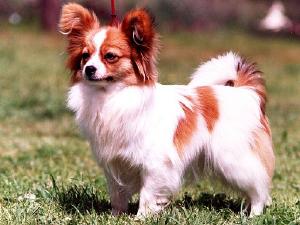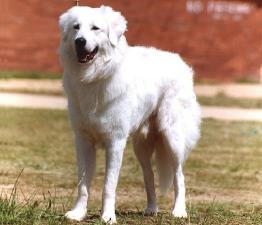
Dogs
Often referred to as the "Gray Ghost," the Weimaraner is one of the best all around gun dogs. Originally used in the hunting of big game, the Weimaraner is now used primarily to hunt birds.
The early history of the Weimaraner is uncertain; however, it is thought that this sporting dog's ancestors date back to early 19th century Germany. It is thought by many that the first Weimaraner was seen in the German court of Weimar, the capital of Thuringia. Through the decades, sportsmen have enjoyed the Weimaraner's keen hunting abilities. The breed was originally used to stalk deer, hunt wolves and to trail and hunt bear, mountain lions and wild boar.
As interest in big game hunting diminished, the Weimaraner was developed into the perfect "gun dog." The breed has shown a tremendous natural ability to hunt birds, particularly waterfowl.
In 1929, Weimaraners were first introduced in America. Since then, the dog has become a well-loved family pet for many people. The breed was first registered by the American Kennel Club in 1943.
The Weimaraner is a medium-sized, deep-chested dog with either a long or short coat. Coat color varies from mouse- to silver-gray with possible small white spots on the chest. The breed's head and ears are moderately long. Eye color ranges from shades of gray to amber and the lips and gums are pinkish. The Weimaraner has a proud and noble demeanor and in show competition have docked tails approximately six inches long.
Adult Weimaraners average 25 to 27 inches in height at the shoulder and weigh 70 to 85 pounds.
The Weimaraner is a graceful, athletic dog and as such requires daily exercise. This breed is usually not content when confined to the house or a kennel for long periods. He's intelligent, energetic and enjoys activities that allow for interaction with the family. The breed is not known for excessive barking; however, owners appreciate the Weimaraner's announcement of strangers. These pets are generally gentle and protective companions without being extremely aggressive.
The Weimaraner can be a good family pet and friendly with children if trained from a young age to interact appropriately with people. Similarly, this breed generally relates well with other household pets.
As intelligent pets, Weimaraners are highly trainable. They do well in field sports, obedience training and as family pets. Whereas any type of training is most effective if instituted while your pet is still a puppy, Weimaraners are generally known to be trainable as adults as well.
Because this breed has been bred to hunt, they are healthiest and happiest when they are able to run and exercise every day. You may find that two or three walks daily are not sufficient for your pet. The Weimaraner does not enjoy being left alone for extended periods of time and may develop destructive and behavior problems.
 Japanese Spaniels: A guide to dogs and puppies of the Japanese Spaniel breed
The Japanese Spaniel!
This dog has a very elegant, high-ste
Japanese Spaniels: A guide to dogs and puppies of the Japanese Spaniel breed
The Japanese Spaniel!
This dog has a very elegant, high-ste
 Medium Dog Breeds
Medium Dog Breeds
Medium Dog Breeds
Medium Dog Breeds
 Papillon
Papillon
Papillon
Papillon
 Maremma Sheepdog
Maremma Sheepd
Maremma Sheepdog
Maremma Sheepd
 Belgian Malinoiss: A guide to dogs and puppies of the Belgian Malinois breed
The Belgian Malinois!
The Belgian Malinois was once conside
Belgian Malinoiss: A guide to dogs and puppies of the Belgian Malinois breed
The Belgian Malinois!
The Belgian Malinois was once conside
Copyright © 2005-2016 Pet Information All Rights Reserved
Contact us: www162date@outlook.com